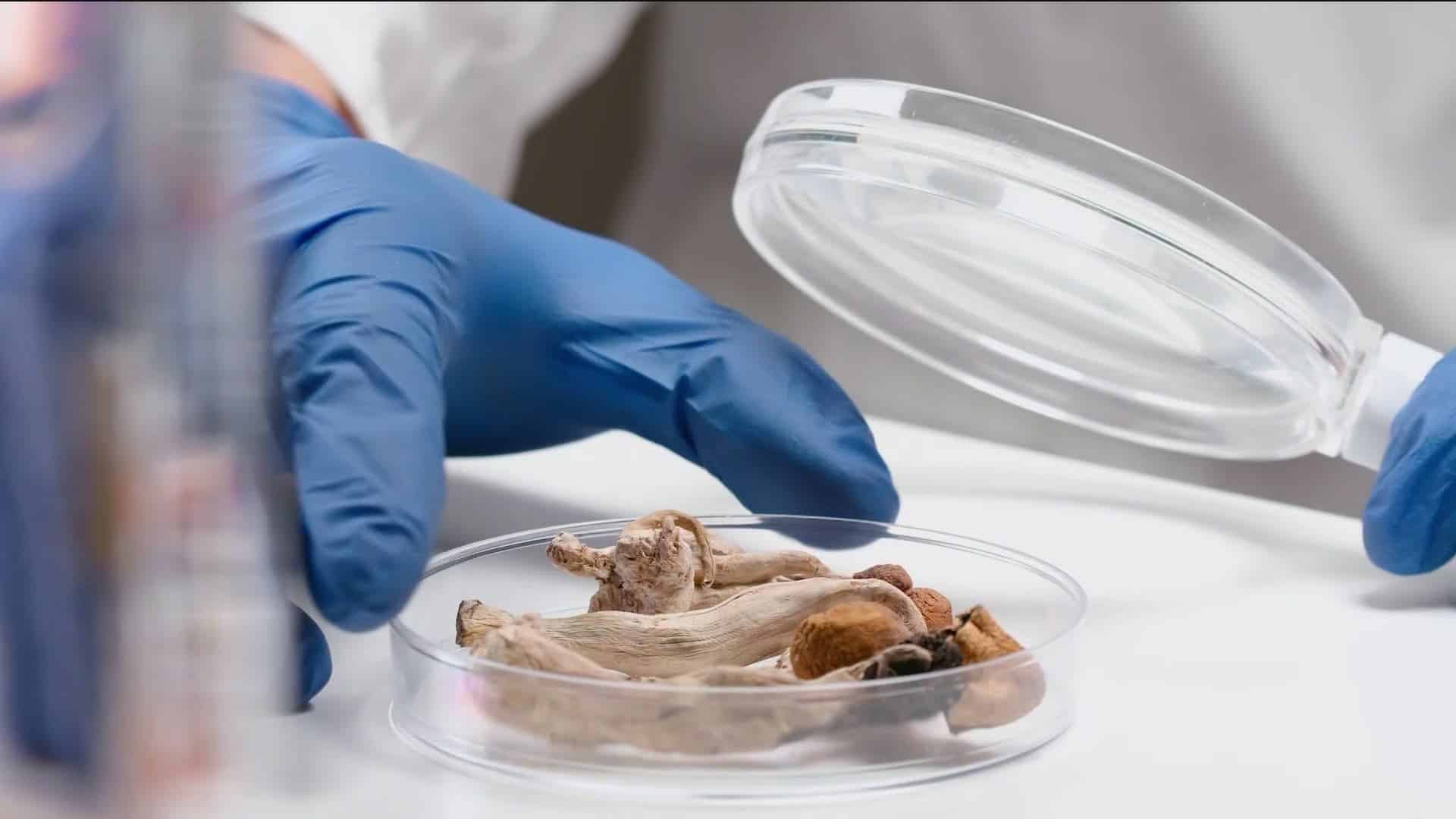Mushroom gummies have quickly become a popular supplement, blending the benefits of medicinal mushrooms with the convenience of a tasty treat. These gummies are touted for a variety of health perks, from boosting brainpower to enhancing immune function. But the big question on everyone’s mind is: do they really deliver on these promises?
In this article, we’ll delve into the world of mushroom gummies, exploring what makes them so appealing and examining the evidence behind their health claims. Whether you’re curious about their potential benefits or wondering if they live up to the hype, we’ve got you covered. Let’s find out if mushroom gummies truly deliver what they promise.
Quick Summary
- Types of Mushrooms Used: Reishi, Lion’s Mane, Cordyceps.
- Claimed Benefits: Enhanced cognitive function, improved immunity, reduced stress.
- Scientific Evidence: Studies support the benefits of medicinal mushrooms, but specific research on gummies is limited.
- Comparison to Other Forms: Gummies offer convenience and better taste but may vary in bioavailability.
- Consumer Guide: Importance of quality ingredients, appropriate dosage, and third-party certifications.
- Effectiveness: Mixed reviews from consumers and experts.
Mushroom Gummies
What Are Mushroom Gummies?
Mushroom gummies are chewable supplements that incorporate various medicinal mushrooms into a palatable form. These gummies typically contain extracts from mushrooms like Reishi, Lion’s Mane, and Cordyceps, known for their potential health benefits.
Why Are They Popular?
The popularity of mushroom gummies stems from their convenience and taste. Unlike powders or capsules, gummies are easy to consume and often have a pleasant flavor. Additionally, they offer a simple way to incorporate the benefits of medicinal mushrooms into a daily routine.
Claimed Benefits of Mushroom Gummies

Health Benefits
Mushroom gummies are marketed as supplements that can provide a variety of health benefits. These benefits are attributed to the bioactive compounds found in medicinal mushrooms. Here’s a deeper look into some of the most commonly claimed benefits:
Enhanced Cognitive Function
One of the primary benefits claimed by mushroom gummy manufacturers is the enhancement of cognitive function. This is especially linked to Lion’s Mane mushrooms, which are known for their neuroprotective properties. Research suggests that Lion’s Mane may stimulate the production of nerve growth factor (NGF), a protein essential for the growth and survival of neurons. Regular consumption of Lion’s Mane has been associated with improvements in memory, focus, and overall brain health.
Improved Immunity
Another significant benefit of mushroom gummies is their potential to boost the immune system. Reishi mushrooms are particularly noted for their immune-enhancing properties. These mushrooms contain beta-glucans, complex sugars that may help stimulate the immune system, making it more effective at fighting off infections. Reishi is also believed to support the production of white blood cells, which are crucial for immune defense.
Reduced Stress
Reishi mushrooms are also known for their adaptogenic properties, which help the body adapt to stress and promote relaxation. The triterpenes found in Reishi are thought to have a calming effect on the nervous system, reducing anxiety and promoting a sense of well-being. This makes mushroom gummies containing Reishi a popular choice for those looking to manage stress naturally.
Energy Boost
For those seeking an energy boost, Cordyceps mushrooms are a popular ingredient in mushroom gummies. Cordyceps are believed to enhance the body’s production of adenosine triphosphate (ATP), a molecule that delivers energy to muscles. This can lead to improved stamina and athletic performance. Studies have shown that Cordyceps may help increase oxygen uptake and utilization during exercise, making them a favorite among athletes and fitness enthusiasts.
Types of Mushrooms and Their Specific Benefits
Reishi: Stress Relief and Immune Support
Reishi mushrooms, often referred to as the “mushroom of immortality,” are prized for their ability to reduce stress and support the immune system. The compounds in Reishi, such as polysaccharides and triterpenoids, work together to modulate the immune response and help the body cope with stress. Regular consumption of Reishi is believed to enhance resilience to stress and improve overall health.
Lion’s Mane: Cognitive Enhancement and Nerve Health
Lion’s Mane mushrooms are unique in their ability to stimulate the growth of nerve cells, thanks to compounds like hericenones and erinacines. These compounds are thought to cross the blood-brain barrier, promoting neurogenesis and protecting against cognitive decline. Lion’s Mane is often recommended for those seeking to enhance their cognitive function and protect against neurodegenerative diseases.
Cordyceps: Energy Boost and Athletic Performance
Cordyceps mushrooms are renowned for their ability to enhance physical performance and boost energy levels. The bioactive compounds in Cordyceps, such as cordycepin, are believed to increase the body’s production of ATP, improving endurance and reducing fatigue. Athletes often turn to Cordyceps to gain a competitive edge and support their training regimens.
In conclusion, while mushroom gummies are promoted for various health benefits, it is essential to choose products made from high-quality mushroom extracts and to consult with healthcare professionals before incorporating them into your routine. The unique properties of Reishi, Lion’s Mane, and Cordyceps can offer significant health advantages when consumed as part of a balanced diet and healthy lifestyle.
Scientific Evidence and Research

Studies Supporting Mushroom Benefits
Reishi Mushrooms
Reishi mushrooms have been the subject of numerous scientific studies due to their wide range of potential health benefits. Research indicates that Reishi mushrooms can enhance immune function by increasing the activity of white blood cells, which play a critical role in fighting infections and cancer. One study published in the Journal of Ethnopharmacology found that Reishi extract significantly increased the proliferation of immune cells, suggesting its potential as an immunomodulatory agent.
Moreover, Reishi mushrooms contain triterpenoids and polysaccharides that exhibit anti-inflammatory and antioxidant properties. A comprehensive review published in Nutrients highlighted the various bioactive compounds in Reishi that contribute to its anti-cancer, anti-inflammatory, and antioxidant activities. These compounds are believed to help reduce oxidative stress and inflammation, which are linked to chronic diseases.
Lion’s Mane Mushrooms
Lion’s Mane mushrooms are particularly noted for their neuroprotective properties. Studies have shown that compounds found in Lion’s Mane, such as hericenones and erinacines, can stimulate the production of nerve growth factor (NGF), which is crucial for the growth and maintenance of neurons. A study published in the International Journal of Medicinal Mushrooms demonstrated that Lion’s Mane extract improved cognitive function in older adults with mild cognitive impairment. The participants showed significant improvements in their cognitive scores after consuming Lion’s Mane for several weeks.
In addition to cognitive enhancement, Lion’s Mane has been studied for its potential to support nerve health and repair. Research published in the Journal of Agricultural and Food Chemistry found that Lion’s Mane extract promoted nerve regeneration in animal models, indicating its potential therapeutic benefits for neurodegenerative diseases and nerve injuries.
Cordyceps Mushrooms
Cordyceps mushrooms have gained attention for their ability to boost energy levels and improve athletic performance. Research suggests that Cordyceps can enhance the body’s production of adenosine triphosphate (ATP), a molecule essential for delivering energy to muscles. A study published in the Journal of Alternative and Complementary Medicine found that Cordyceps supplementation improved exercise performance and increased oxygen uptake in healthy elderly participants. These findings support the use of Cordyceps as a natural supplement for enhancing physical stamina and endurance.
Additionally, Cordyceps contain adenosine and cordycepin, which have been shown to improve cardiovascular health by regulating blood pressure and improving blood flow. A study published in the Journal of Clinical Endocrinology & Metabolism indicated that Cordyceps extract improved metabolic function and reduced fatigue in patients with chronic kidney disease, highlighting its potential benefits beyond athletic performance.
Evidence for Mushroom Gummies Specifically
While the health benefits of medicinal mushrooms are well-supported by scientific research, studies specifically focusing on mushroom gummies are relatively limited. The efficacy of mushroom gummies compared to other forms such as powders or capsules is an area that requires further exploration.
Bioavailability of Gummies
One critical factor to consider is the bioavailability of active compounds in mushroom gummies. Bioavailability refers to the extent and rate at which the active ingredients are absorbed and utilized by the body. Some studies suggest that the bioavailability of certain compounds may differ between delivery forms. For instance, a study published in Food & Function explored the bioavailability of polysaccharides from Reishi mushrooms and found that the extraction method and delivery form can significantly influence their absorption and efficacy.
Comparative Studies
Comparative studies examining the effectiveness of gummies versus other forms of supplements are sparse. However, the convenience and palatability of gummies might lead to better compliance among users, potentially enhancing their overall effectiveness. A review in the Journal of Dietary Supplements emphasized the importance of compliance in achieving the desired health outcomes, noting that user preference for certain forms of supplements can impact their regular consumption and, consequently, their benefits.
In conclusion, while the general benefits of medicinal mushrooms like Reishi, Lion’s Mane, and Cordyceps are well-documented, more targeted research is needed to fully understand the efficacy of mushroom gummies. Consumers should look for high-quality products and consider consulting healthcare professionals to determine the best form of supplementation for their needs.
Do Mushroom Gummies Deliver?
Consumer Reviews and Testimonials
When evaluating whether mushroom gummies deliver on their promises, consumer reviews and testimonials offer valuable insights. Many users have reported positive experiences with mushroom gummies, noting benefits such as enhanced mental clarity, increased energy levels, and reduced stress. For instance, some consumers have shared that after incorporating Lion’s Mane gummies into their daily routine, they noticed improved focus and memory, making them more productive at work and in their personal lives.
However, not all reviews are glowing. Some users report minimal or no noticeable effects, which may be due to several factors, such as differences in individual physiology, the quality of the gummies, or inconsistent usage. It’s important to remember that supplements often work differently for each person, and what works well for one individual may not work as effectively for another.
Expert Opinions
Experts in the field of nutrition and dietary supplements provide a more nuanced perspective on the effectiveness of mushroom gummies. Nutritionists and healthcare professionals generally agree that medicinal mushrooms like Reishi, Lion’s Mane, and Cordyceps have potential health benefits. However, they emphasize that the quality of the product is crucial. High-quality mushroom gummies should contain a significant amount of active ingredients without unnecessary fillers or artificial additives.
Scientific Insights
From a scientific standpoint, while there is substantial evidence supporting the benefits of medicinal mushrooms, research specifically on mushroom gummies is still emerging. Studies have confirmed that compounds found in mushrooms, such as beta-glucans in Reishi and hericenones in Lion’s Mane, offer various health benefits. However, the efficacy of these compounds when delivered in gummy form versus other formats like powders or capsules is less clear.
Research on the bioavailability of active compounds in gummies suggests that the form of the supplement can impact absorption. For example, the presence of sugars and other binding agents in gummies may affect how the body processes these compounds. Some studies indicate that while gummies are more palatable and easier to consume, they may not always deliver the same potency as other forms of supplements.
Why Try Mushroom Gummies?
Despite the varying reviews and scientific uncertainties, there are compelling reasons to try mushroom gummies:
- Convenience: Gummies are easy to take and can be consumed on the go, making it simpler to maintain a consistent supplement routine.
- Taste: Unlike some powders and capsules, gummies often have a pleasant flavor, which can make the experience of taking supplements more enjoyable.
- Versatility: Mushroom gummies can be a good introduction to medicinal mushrooms for those who are new to these types of supplements and might be hesitant to try powders or capsules.
Consumer Guide: Choosing the Right Mushroom Gummies
What to Look for in Quality Gummies
When selecting mushroom gummies, it’s essential to consider several key factors to ensure you’re getting a high-quality product that will deliver the desired benefits.
Ingredients
The ingredient list is one of the first things to check. High-quality mushroom gummies should contain natural and organic mushroom extracts. Avoid products with artificial colors, flavors, and preservatives. The mushrooms should ideally be sourced from reputable suppliers known for sustainable and ethical practices. Look for labels indicating the use of whole fruiting bodies rather than mycelium on grain, as the former typically contains higher concentrations of active compounds.
Dosage
Effective dosage is crucial for achieving the health benefits associated with medicinal mushrooms. Check the label for information on the amount of mushroom extract per serving. Research suggests that a daily dose of 500-1500 mg of mushroom extract is beneficial for most people, but this can vary depending on the specific mushroom and desired effect. Ensure the dosage aligns with the recommendations from scientific studies or healthcare providers.
Certification
Third-party testing and certifications can provide an extra layer of assurance regarding the quality and safety of the product. Look for gummies that have been tested by independent laboratories for purity, potency, and the absence of contaminants such as heavy metals, pesticides, and microbial impurities. Certifications from organizations like USDA Organic, NSF, or GMP (Good Manufacturing Practices) indicate that the product meets high standards of quality.
Potential Side Effects and Considerations
While mushroom gummies are generally safe for most people, it’s important to be aware of potential side effects and considerations.
Allergies
Individuals with known allergies to mushrooms should exercise caution when trying mushroom gummies. Although rare, allergic reactions can occur and may manifest as skin rashes, digestive issues, or respiratory symptoms. It’s advisable to start with a small dose to assess your body’s response before incorporating them into your regular routine.
Medical Conditions
Certain medical conditions might contraindicate the use of mushroom supplements. For instance, people with autoimmune diseases should consult with a healthcare provider before taking immune-boosting mushrooms like Reishi. Similarly, those with bleeding disorders or who are taking anticoagulant medications should seek medical advice before consuming mushrooms known for their blood-thinning properties.
Interactions with Medications
Mushroom extracts can interact with certain medications, potentially altering their effectiveness. For example, Cordyceps may enhance the effects of stimulants or anti-diabetic drugs, leading to undesirable effects. Always discuss with a healthcare professional if you are on medication to ensure there are no harmful interactions.
Practical Tips for Choosing the Best Gummies
Read Reviews
Consumer reviews can provide real-world insights into the effectiveness and taste of mushroom gummies. Look for products with a high number of positive reviews and detailed feedback from users who share similar health goals. Pay attention to comments about the taste, as this can be a significant factor in whether you’ll consistently take the supplement.
Consider the Formulation
Some mushroom gummies combine multiple types of mushrooms to provide a broad spectrum of benefits. For instance, a blend of Reishi, Lion’s Mane, and Cordyceps might offer comprehensive support for immunity, cognitive function, and energy levels. However, if you’re targeting a specific benefit, you might prefer a product that focuses on a single type of mushroom with a higher dosage.
Conclusion
In conclusion, mushroom gummies have the potential to deliver on their promises, especially when they are made from high-quality ingredients and consumed consistently. While consumer experiences vary, and more research is needed to fully understand their efficacy, many people have found them to be a valuable addition to their wellness routines. As with any supplement, it’s advisable to consult with a healthcare provider before starting to ensure they align with your health goals and needs.
By carefully selecting reputable products and maintaining realistic expectations, consumers can explore the potential benefits of mushroom gummies as part of a holistic approach to health and wellness.
References
- Docherty, Sarah, et al. “The Acute and Chronic Effects of Lion’s Mane Mushroom Supplementation on Cognitive Function, Stress and Mood in Young Adults: A Double-Blind, Parallel Groups, Pilot Study.” Nutrients, vol. 15, no. 22, 20 Nov. 2023, pp. 4842–4842, https://doi.org/10.3390/nu15224842.
- Hirsch, Katie R., et al. “Cordyceps MilitarisImproves Tolerance to High-Intensity Exercise after Acute and Chronic Supplementation.” Journal of Dietary Supplements, vol. 14, no. 1, 13 July 2016, pp. 42–53, https://doi.org/10.1080/19390211.2016.1203386.
- Ko, Kam, and Hoi Leung. “Enhancement of ATP Generation Capacity, Antioxidant Activity and Immunomodulatory Activities by Chinese Yang and Yin Tonifying Herbs.” Chinese Medicine, vol. 2, no. 1, 2007, p. 3, https://doi.org/10.1186/1749-8546-2-3.
- Lai, Puei-Lene, et al. “Neurotrophic Properties of the Lion’s Mane Medicinal Mushroom, Hericium Erinaceus (Higher Basidiomycetes) from Malaysia.” International Journal of Medicinal Mushrooms, vol. 15, no. 6, 2013, pp. 539–554, https://doi.org/10.1615/intjmedmushr.v15.i6.30.
- Li, I-Chen, et al. “Neurohealth Properties OfHericium ErinaceusMycelia Enriched with Erinacines.” Behavioural Neurology, vol. 2018, 2018, pp. 1–10, https://doi.org/10.1155/2018/5802634.
- Mohammed Sharif Swallah, et al. “Therapeutic Potential and Nutritional Significance of Ganoderma Lucidum – a Comprehensive Review from 2010 to 2022.” Food & Function, vol. 14, no. 4, 1 Jan. 2023, pp. 1812–1838, https://doi.org/10.1039/d2fo01683d. Accessed 11 Jan. 2024.
- Sissi Wachtel-Galor, et al. “Ganoderma Lucidum (Lingzhi or Reishi).” Nih.gov, CRC Press/Taylor & Francis, 2011, www.ncbi.nlm.nih.gov/books/NBK92757/.
- Venturella, Giuseppe, et al. “Medicinal Mushrooms: Bioactive Compounds, Use, and Clinical Trials.” International Journal of Molecular Sciences, vol. 22, no. 2, 10 Jan. 2021, p. 634, res.mdpi.com/d_attachment/ijms/ijms-22-00634/article_deploy/ijms-22-00634-v2.pdf, https://doi.org/10.3390/ijms22020634.


